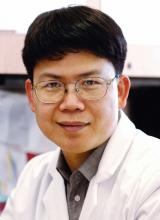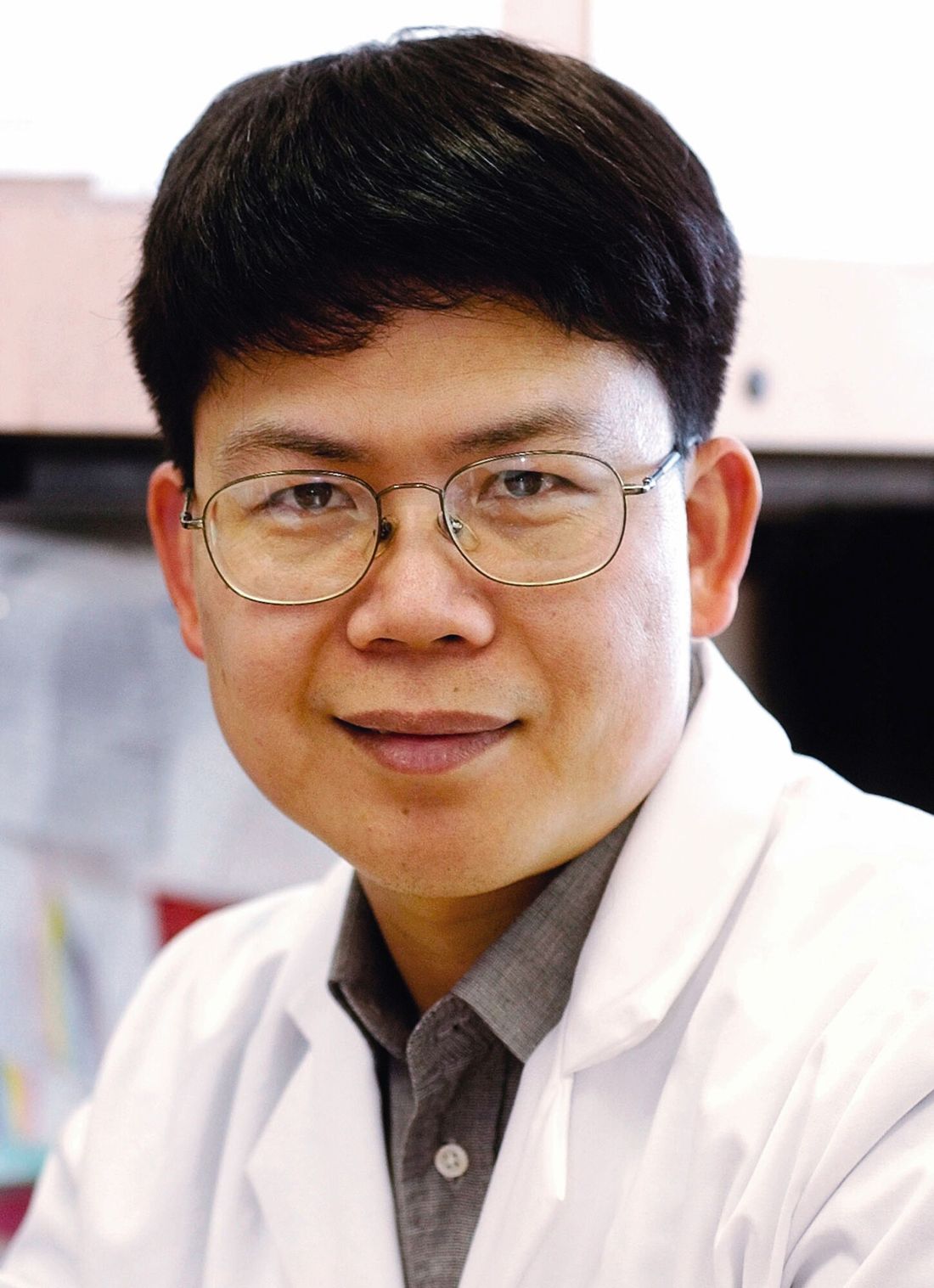User login
The Foundation of the National Institutes of Health has awarded according to a statement released Tuesday, April 3.
“We are proud to honor Dr. Chen with the 2018 Lurie Prize in Biomedical Sciences for the discovery of the cGAS enzyme and pathway and their unique role in immune and inflammatory response,” Maria C. Freire, PhD, president and executive director of the FNIH, said in a press release. “Dr. Chen joins five other Lurie Prize winners, who are shaping the future of human health through their profound biomedical research.”
While scientists have known for some time that DNA had a role in activating the immune response, the specifics of the process eluded explanation.
Through their work, Dr. Chen and his team uncovered that cGAS was the enzyme used to spark the reaction.
“[cGAS] is a protein sensor that detects DNA as a danger signal that then triggers the immune response,” said Dr. Chen. “When DNA gets into the cytoplasm, cGAS becomes activated and catalyzes the synthesis of a small molecule, called cGAMP, which then functions as a messenger that activates the immune response pathway.”
While the cGAS enzyme can help defend against infectious disease or cancer, the enzyme can also trigger autoimmune diseases such as rheumatoid arthritis.
Dr. Chen is the George L. MacGregor Distinguished Chair in Biomedical Science and professor of molecular biology at the University of Texas Southwestern Medical Center, Dallas, and an investigator for the Howard Hughes Medical Institute, Chevy Chase, Md. He completed his undergraduate study in biology at Fujian (China) Normal University, after which he went on to earn his PhD from State University of New York at Buffalo.
The prize includes a $100,000 honorarium, donated to the FNIH by philanthropist Ann Lurie, who serves as president of the Ann and Robert H. Lurie Foundation and president of Lurie Holdings, according to the press release.
“This is a tremendous honor and is a strong endorsement of the work discovered by the scientists in my lab; it is very exciting,” said Dr. Chen. “We hope to continue our work to deepen our understanding of this pathway, as the mechanisms of the pathway are not yet completely understood, as well as look more into how we can harness the immunity pathway to develop treatments for cases like autoimmune diseases or cancer.”
The Foundation of the National Institutes of Health has awarded according to a statement released Tuesday, April 3.
“We are proud to honor Dr. Chen with the 2018 Lurie Prize in Biomedical Sciences for the discovery of the cGAS enzyme and pathway and their unique role in immune and inflammatory response,” Maria C. Freire, PhD, president and executive director of the FNIH, said in a press release. “Dr. Chen joins five other Lurie Prize winners, who are shaping the future of human health through their profound biomedical research.”
While scientists have known for some time that DNA had a role in activating the immune response, the specifics of the process eluded explanation.
Through their work, Dr. Chen and his team uncovered that cGAS was the enzyme used to spark the reaction.
“[cGAS] is a protein sensor that detects DNA as a danger signal that then triggers the immune response,” said Dr. Chen. “When DNA gets into the cytoplasm, cGAS becomes activated and catalyzes the synthesis of a small molecule, called cGAMP, which then functions as a messenger that activates the immune response pathway.”
While the cGAS enzyme can help defend against infectious disease or cancer, the enzyme can also trigger autoimmune diseases such as rheumatoid arthritis.
Dr. Chen is the George L. MacGregor Distinguished Chair in Biomedical Science and professor of molecular biology at the University of Texas Southwestern Medical Center, Dallas, and an investigator for the Howard Hughes Medical Institute, Chevy Chase, Md. He completed his undergraduate study in biology at Fujian (China) Normal University, after which he went on to earn his PhD from State University of New York at Buffalo.
The prize includes a $100,000 honorarium, donated to the FNIH by philanthropist Ann Lurie, who serves as president of the Ann and Robert H. Lurie Foundation and president of Lurie Holdings, according to the press release.
“This is a tremendous honor and is a strong endorsement of the work discovered by the scientists in my lab; it is very exciting,” said Dr. Chen. “We hope to continue our work to deepen our understanding of this pathway, as the mechanisms of the pathway are not yet completely understood, as well as look more into how we can harness the immunity pathway to develop treatments for cases like autoimmune diseases or cancer.”
The Foundation of the National Institutes of Health has awarded according to a statement released Tuesday, April 3.
“We are proud to honor Dr. Chen with the 2018 Lurie Prize in Biomedical Sciences for the discovery of the cGAS enzyme and pathway and their unique role in immune and inflammatory response,” Maria C. Freire, PhD, president and executive director of the FNIH, said in a press release. “Dr. Chen joins five other Lurie Prize winners, who are shaping the future of human health through their profound biomedical research.”
While scientists have known for some time that DNA had a role in activating the immune response, the specifics of the process eluded explanation.
Through their work, Dr. Chen and his team uncovered that cGAS was the enzyme used to spark the reaction.
“[cGAS] is a protein sensor that detects DNA as a danger signal that then triggers the immune response,” said Dr. Chen. “When DNA gets into the cytoplasm, cGAS becomes activated and catalyzes the synthesis of a small molecule, called cGAMP, which then functions as a messenger that activates the immune response pathway.”
While the cGAS enzyme can help defend against infectious disease or cancer, the enzyme can also trigger autoimmune diseases such as rheumatoid arthritis.
Dr. Chen is the George L. MacGregor Distinguished Chair in Biomedical Science and professor of molecular biology at the University of Texas Southwestern Medical Center, Dallas, and an investigator for the Howard Hughes Medical Institute, Chevy Chase, Md. He completed his undergraduate study in biology at Fujian (China) Normal University, after which he went on to earn his PhD from State University of New York at Buffalo.
The prize includes a $100,000 honorarium, donated to the FNIH by philanthropist Ann Lurie, who serves as president of the Ann and Robert H. Lurie Foundation and president of Lurie Holdings, according to the press release.
“This is a tremendous honor and is a strong endorsement of the work discovered by the scientists in my lab; it is very exciting,” said Dr. Chen. “We hope to continue our work to deepen our understanding of this pathway, as the mechanisms of the pathway are not yet completely understood, as well as look more into how we can harness the immunity pathway to develop treatments for cases like autoimmune diseases or cancer.”

